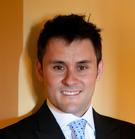
Dani Selva is is an Associate Professor of Aerospace Engineering at Texas A&M University, where he directs the Space Systems Engineering, Autonomy, and Knowledge (SEAK) Lab. His research interests focus on the application of global optimization, artificial intelligence (knowledge representation and reasoning, planning and scheduling, multi-agent coordination), and machine learning to space system design and operations. He is particularly interested in new mission concepts that leverage autonomy and distributed architectures based on small satellites for Earth observation, communications, and navigation. Before doing his Ph.D. in Space Systems at MIT, Dr. Selva worked for four years in Kourou (French Guiana) as an avionics specialist within the Ariane 5 Launch team, where he had 21 successful Ariane 5 flights. Dr. Selva has a dual background in electrical engineering and aerospace engineering, with degrees from MIT, Universitat Politecnica de Catalunya in Barcelona, Spain, and Supaero in Toulouse, France. Dr. Selva’s research has been funded by NASA, NSF, JPL, DOD (DARPA, SERC, AIRC), the Ford Motor Company, Lockheed Martin, and Mathworks among others. He has co-authored over 100 peer-reviewed publications. Dr. Selva received the 2023 Texas A&M Engineering Young Faculty Fellow Award. He was also a recipient of Best Paper Awards at the 2013 IEEE Aerospace Conference, 2018 Design Computing and Cognition, and 2020 AIAA Scitech Forum/Intelligent Systems Track. Dr. Selva served in (and was the youngest member evet appointed to) the European Space Agency’s Advisory Committee for Earth Observation, which advises the Director of Earth Observation in strategic matters including but not limited to the selection of Earth Explorer missions (~400 million Euro decisions). He has also provided input to the White House Office of Science and Technology on the capabilities of CubeSats for Earth Observation. Dr. Selva is an AIAA Associate Fellow and a Deputy Director of the AIAA Information Systems Group. Ultimately, Dani is most inspired by two things: everything space, and the Systems scientists of the 1970’s such as Herbert Simon who conducted multi-disciplinary research at the intersection of artificial intelligence, cognitive psychology, economics, statistics, and decision analysis.
Full CV (last updated October 2024)